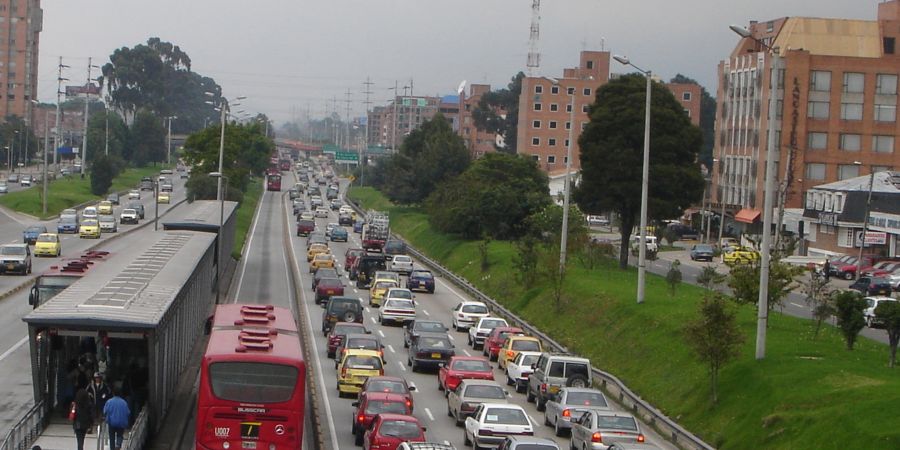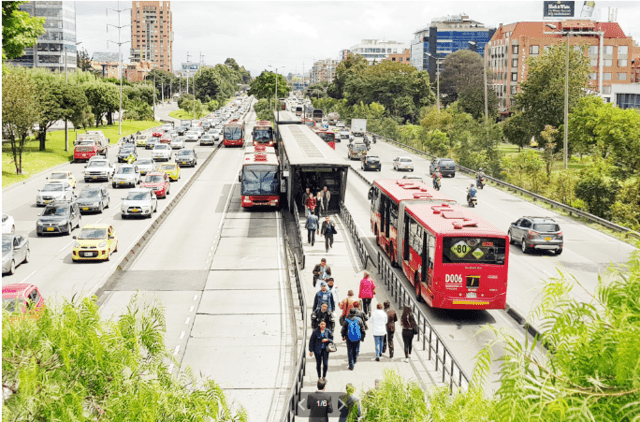
Background: The transport sector is the fastest-growing sector in terms of greenhouse gas (GHG) emissions in Colombia. Urban areas suffer from growing traffic congestion, poor air quality and significant road safety concerns. The Colombian government believes that a more holistic approach to transport planning and deployment is required, with better coordination of land use and transport systems and integration with social housing policy.
Approach to Transformational Change: The project “Colombia – Transit-Oriented Development (TOD)” supports the transformation of urban development in Colombia by demonstrating how transit-oriented development can reduce the growth in car traffic by 25–36 per cent and simultaneously improve air quality. Public and private investments (through Public Private Partnerships) will be channelled into showcase projects across a range of locations and intervention types. Thus, the project will promote better-designed, walkable, transit-oriented neighbourhoods and will contribute to reduced household transport costs, better access to jobs and services and improved social inclusion in the respective area.
As part of its financial mechanism, the project will enable Findeter to grant loans with an increased funding volume and attractive conditions for local institutions to finance transit-oriented development projects. Over EUR 60 million are expected to be leveraged by the loans.
Mitigation potential: It is estimated that the project could reduce annual GHG emissions by 3.6 to 5.5 million tons CO2e by 2040.
Visit the project’s blog [available in English] to learn more about it.








